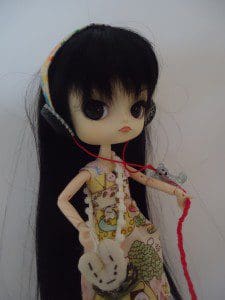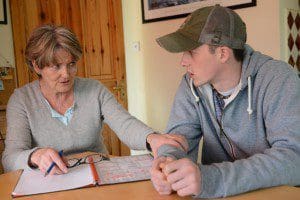
Studies show when people have a bad experience with therapy it can make them have a bad attitude about therapy in general. Sometimes I tell my patients that therapy could help them, and they tell me, “Nah, it’s not for me.” If they had a bad experience before, that response totally makes sense.
What are some reasons you feel your child or others you know have had negative experiences with therapy?
Here are a few examples your child may relate to:
The first time they went, it wasn’t their decision.
Going to therapy can help with a lot of different problems your child may have—but if they were made to go or it felt like it was a punishment versus a decision they made to become more healthy, they might have a negative attitude about it. My mom used to make me pick weeds in our driveway, and I kind of have a bad attitude about gardening! Even though a lot of people enjoy it.
The therapist and you did not seem to connect.
We know a big reason therapy works is the therapeutic alliance, which we wrote about in a prior post. If your child felt like they didn’t connect with their first therapist – or especially if they didn’t feel like the therapist cared about them, that might have been a tough experience for them. Telling someone your deepest thoughts makes your child vulnerable and if it didn’t work the first time, maybe they don’t want to take that risk again.
You (the parent) were too involved.
Your child may have felt like they couldn’t be honest if you were always around. Or maybe they felt more nervous and weren’t able to listen because they were worried something they might say would get them into trouble. Parents can still be involved without being overly involved.
Your child felt betrayed.
If your child received therapy when they were younger and the therapist was worried about abuse, that is something that the therapist has to report to the state for their safety. But when you are a kid in the mix of it, sometimes you feel like your trust was betrayed. That can be hard to deal with.
The thing is – one bad experience does not mean the next one will be. And your child’s experience as a young person or child may be different when they are older. There are things you and your child can do to help make sure that their next therapy experience is a good one. We know therapy works and can get your child to better mental health.
If your child had a bad experience before, but wants to try therapy again, here are some things they can try:
- Make a list of the pros and cons about going to therapy – go over the list with someone they trust like you, another supportive adult or their primary care doctor and together, make a decision if this is a next best step for them
- At the first session, tell the therapist what their expectations and hopes are from therapy
- If they feel like they don’t connect with their therapist, ask for a referral to see someone else—therapists are used to this as everyone is different and sometimes certain personalities don’t click
- If you would like to be involved, talk to the therapist about the best way to communicate with them without making your child feel like they cannot be honest with their therapist. If you feel more work is needed between you and your child, ask your child’s therapist if they recommend family therapy in addition to individual therapy
- at the first session, your child should talk to their therapist about the limits of confidentiality – what do they always keep private and what if anything, are they not allowed to keep private
Do you have any other examples of negative experiences you or your child have had with therapy? Or tips you have about how to make the next experience positive?

















